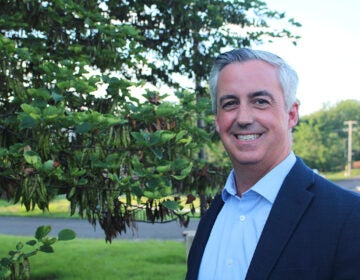Pew study shows younger Americans steer clear of faiths that act like fortresses
By their fruits you shall know them. As you sow, so shall you reap.
Those were a couple of Bible verses that ran through my mind as I skimmed a new report from the Pew Research Center.
It’s based on a survey showing that 20 percent of Americans, or one in five, reports having no affiliation to organized religion, up from 15 percent just five years ago.
And the poll found that, for the first time, less than half of the nation’s residents self-identify as Protestants.
Among young people, the percentage reporting no religious affiliation was much higher: one out of three.
Be aware, though, that saying you have no affinity for an organized church is not the same as being agnostic or atheist.
Of the 46 million Americans that the Pew survey estimates have no allegiance to a church or denomination, only 13 million doubt or reject the idea of God.
Many of the rest are younger people, politically moderate or liberal, who describe themselves as spiritual. Some of them even say they pray every day. But they just find nothing appealing or necessary to their lives in organized religion.
According to a Pew summary of the report, “Overwhelmingly, they think that religious organizations are too concerned with money and power, too focused on rules and too involved in politics.”
And, hey, you gotta admit they have a point.
Reason for skepticism
Particularly the parts about money and power and rules. (This is an argument for another time, but I think most secular liberals are just flat wrong in how they frame their argument that churches should stay out of politics.)
But too addicted to money, power and rules? The evidence piles up, doesn’t it?
Exhibit 1 for the prosecution, at least in the Philadelphia area, has to be the Catholic Church’s decades-long failure to react with either integrity or Christ-like concern for children in the face of its sexual abuse scandal.
Presented with overwhelming evidence that it harbored abusive monsters in its clergy ranks, the church hierarchy worried far more about its reputation being harmed by scandal than about the innocent kids whose lives were being ruined.
Nationally, too many well-known evangelists seem to be more focused on building palatial sanctuaries, huge audiences and padded back accounts than in ministering to the poor, the widowed, the shut-in. Too many Main Line Protestant churches seem far more engrossed with internal conflicts than with giving active witness to the healing Gospel in a hurting world.
According to Pew, the disaffected, young contingent views America’s churches as too loud on issues of sexual morality, while being nowhere to be found on the issues these young citizens care about: social justice, environmental danger, diversity.
Actually, plenty of people of faith work tirelessly on those issues — but their voices tend to be drowned out. Why? In part because they are demoralized and timid, less willing than other, cocksure religious voices to wade into the nasty partisan morass of big-time media. And in part because their faith calls them to be more nuanced, less certain of their creed than the shouters of talk radio and cable news prefer.
The fortress and the pilgrim
There are, in my view, essentially two kinds of organized faiths in this world. Using Christian vocabulary, where I’m most comfortable, I’d call them the “fortress church” and the “pilgrim church.”
The fortress church believes it possesses eternal truths delivered from on high that resolve most of the big questions of life. Its job, it believes, is to proclaim and preserve those truths.
So it builds high walls — ever higher these days — to keep out the doubters and the infidels. Peeking out over the ramparts and seeing ever-greater chaos and evil outside the walls, it enforces every tighter discipline on the believers inside.
The fortress church, feeling threatened, is ever more eager to cast out the heretic, and ever more willing to send out warrior sorties (crusaders or jihadists, it doesn’t matter) to do battle with the infidels, to keep them well away from the fortress walls.
Pilgrim churches, by contrast, see faith as a journey — and can live with some uncertainty as to the destination. The point is always to learn and to grow as you move along the path, having experiences both glad and painful.
Pilgrim churches delight in having others travel the way with them. They find both strength and joy in numbers. They are less concerned with whether fellow pilgrims subscribe to an exact creed down to the last jot and tittle; they just want companions who embrace the journey, who are eager to share both the burdens and the discoveries of the road.
I belong to a pilgrim church, the Episcopal, and delight in its openness and tolerance, while at the same time lamenting that its voice for the Gospel inside society is so often enfeebled by timidity, doubt and silly internal squabbles.
It is a shrinking church. For reasons both stylistic and substantive, it is the type of Protestant church that the young, unaffiliated spirituals of the Pew study are rejecting, or at best, simply ignoring. In pursuing “spirituality” as a solely personal quest, I think these young people are missing something big about community, about how experiencing faith in community can heal, challenge and inspire. But I get why they’re so skeptical.
The face of religion in media and pop culture is almost always that of the fortress churches, and often their worst face — thundering, judgmental, apoplectic, yet hypocritical about the scandals inside their walls.
This is has long been true. This is far from the first time I’ve written similar words. But, sad to say, all the trend lines seem to be getting worse, not better.
The Pew numbers only underscore a trend that has long been obvious to anyone with eyes to see and ears to hear.
E-mail: csatullo@whyy.org
Twitter: @chrissatullo
WHYY is your source for fact-based, in-depth journalism and information. As a nonprofit organization, we rely on financial support from readers like you. Please give today.




